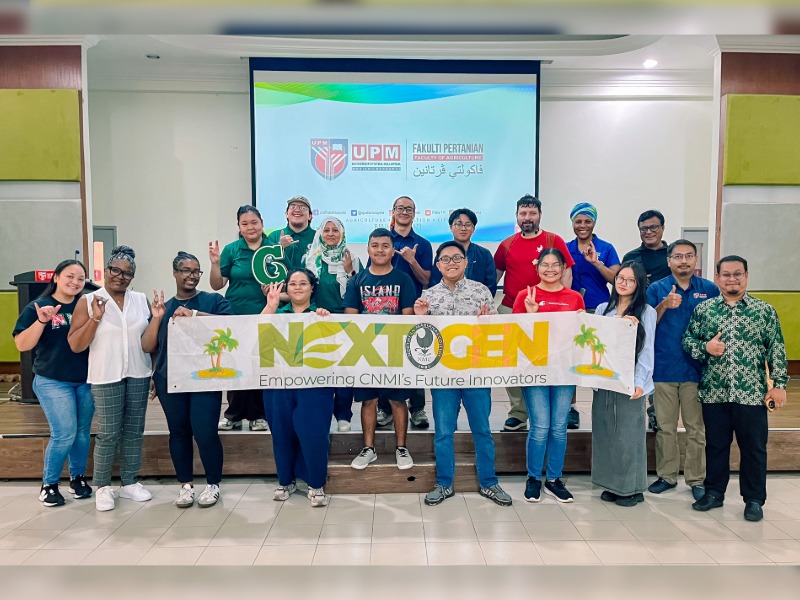Enhancing global experience and student capacity, seven scholars of Northern Marianas College’s NextGen program recently completed its agrotourism and agricultural innovation experiential learning field trip in Kuala Lumpur, Malaysia this July.
The students were treated to a guided tour at the Ajinomoto & Sime Darby Oil Palm Plantation where they gained industry exposure to large-scale food and biotech operations.
Dr. Md. Zaidul Sarker, shared his pride in the scholars’ participation and immersion, stating, “During this immersive research and experiential learning trip, students actively facilitated collaborations with international researchers, faculty members, and entrepreneurs. They gained firsthand experience in diverse research methodologies aimed at advancing agritourism businesses and explored key areas such as food science, value-added products, and sustainable agriculture. Through these interdisciplinary engagements, students acquired impactful knowledge and practical insights, which they are now equipped to share with their local communities — fostering innovation, sustainability, and economic growth in the agritourism sector.”
Kimo Lizama, a NextGEN scholar attending Southern New Hampshire University studying Computer Science, shared, “The Malaysia trip was such a great learning experience. We visited different farms, met the farmers, and tasted food that was harvested right in front of us. Seeing places like Sky Farm, where agriculture is combined with tourism, really stood out to me. Walking through the terraces and learning about their farming methods made me think about how we could adapt similar ideas in the CNMI. It was fun, but it also gave me a better understanding of how farming connects to culture, the environment, and our local economy.”
The experiential learning trip to Malaysia marks a significant step in the NextGen program's commitment to providing students with practical, global experiences that enhance their understanding of agritourism and sustainable agricultural practices. This initiative not only equipped scholars with new skills and insights, but also fostered valuable collaborations with international academic and research institutions, paving the way for future advancements in the field.
